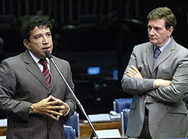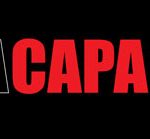2009 was marked by strong anxiety among the gay community around PLC 122, which suffered successive defeats imposed by fundamentalist senators Magno Malta (PR-ES) and Marcelo Crivela (PRB-RJ). Parliamentarians managed to attach the stigma of "gag gag law" and caused the text to be changed and become a law defending minorities. As a result, it was believed that the law would gain support and go to a vote, which did not happen.
In 2010, with the start of campaigns for the presidential elections in August, what was heard from all parliamentarians and figures involved in the political world is that controversial issues – read civil unions and gay adoption, abortion and criminalization of homophobia – are not would be touched, as they would take away votes. Never before has an election made this so clear.
In the pre-campaign phase, the candidates for the Presidency of the Republic, when questioned by the newspapers and questioned about civil unions, gay adoption and abortion, went off on a tangent. Not Dilma, Serra and Marina Silva. Everyone said they were in favor of the sharing of assets between homosexual couples, and, regarding religious marriage, they were vehemently opposed.
Well, when it was imagined that such topics would be deeply debated in the campaign, what we saw was electoral hygiene that would be the envy of any fundamentalist country. Especially when the abortion controversy was raised by the campaign of candidate José Serra (PSDB) who, with the intention of taking votes from his opponent, the elected president Dilma Rousseff, stated that she was lying about her position on the issue.
Pandora's box was opened and sectors that believed they were moribund, for example, Opus Dei, an ultra-conservative sector of the Catholic Church, went public asking that "real Catholics" not vote for the "candidate in favor of abortion". The secular State was going downhill. Pushed into the second round because of the aforementioned issue, the Workers' Party candidate sealed an agreement with the evangelicals.
In a public letter, Rousseff stated that controversial issues (abortion, gay adoption and PLC 122) would not leave her office and that they would be the responsibility of Parliament. Human Rights were clearly raffled off in exchange for votes. The most bizarre thing is that there were two candidates (Dilma vs. Serra), both with a history of supporting human rights and LGBT issues.
The elections followed and the religious corollary sat on top of progressive issues. It felt like we had gone 20 years backwards. The election ended with the victory of the PT candidate. The progress of having elected a woman president in an extremely sexist country was praised. On victory day, despite being accompanied by Luizianne Lins (PT-CE), friendly mayor of Fortaleza, the homophobic Magno Malta appeared like a parrot on Dilma Rousseff's shoulder.
But not everything is gray. The last news we had about PLC 122 is that it was approved by the Senate Human Rights Commission (CDH), and in 2011 it began its career at the Constitution and Justice Commission (CCJ), where it could face strong resistance. The National Congress won the mandate of Jean Wyllys (PSOL-RJ), who could play a fundamental role in the LGBT debate; the Senate lost Fátima Cleide (PT-RO), but won Marta Suplicy (PT-SP), who has already declared that she is in favor of the criminalization of homophobia.
In the Federal Government, there is great expectation surrounding the Minister of Human Rights, Maria do Rosário (PT-RS), who surprisingly declared in her first speech that she will fight for "free sexual orientation" and more recently that she is in favor of adoption by gay couples. The thing is to hope that everything gets better, because, if things happen again, the gay community will spend another year watching ships and listening to empty speeches.



